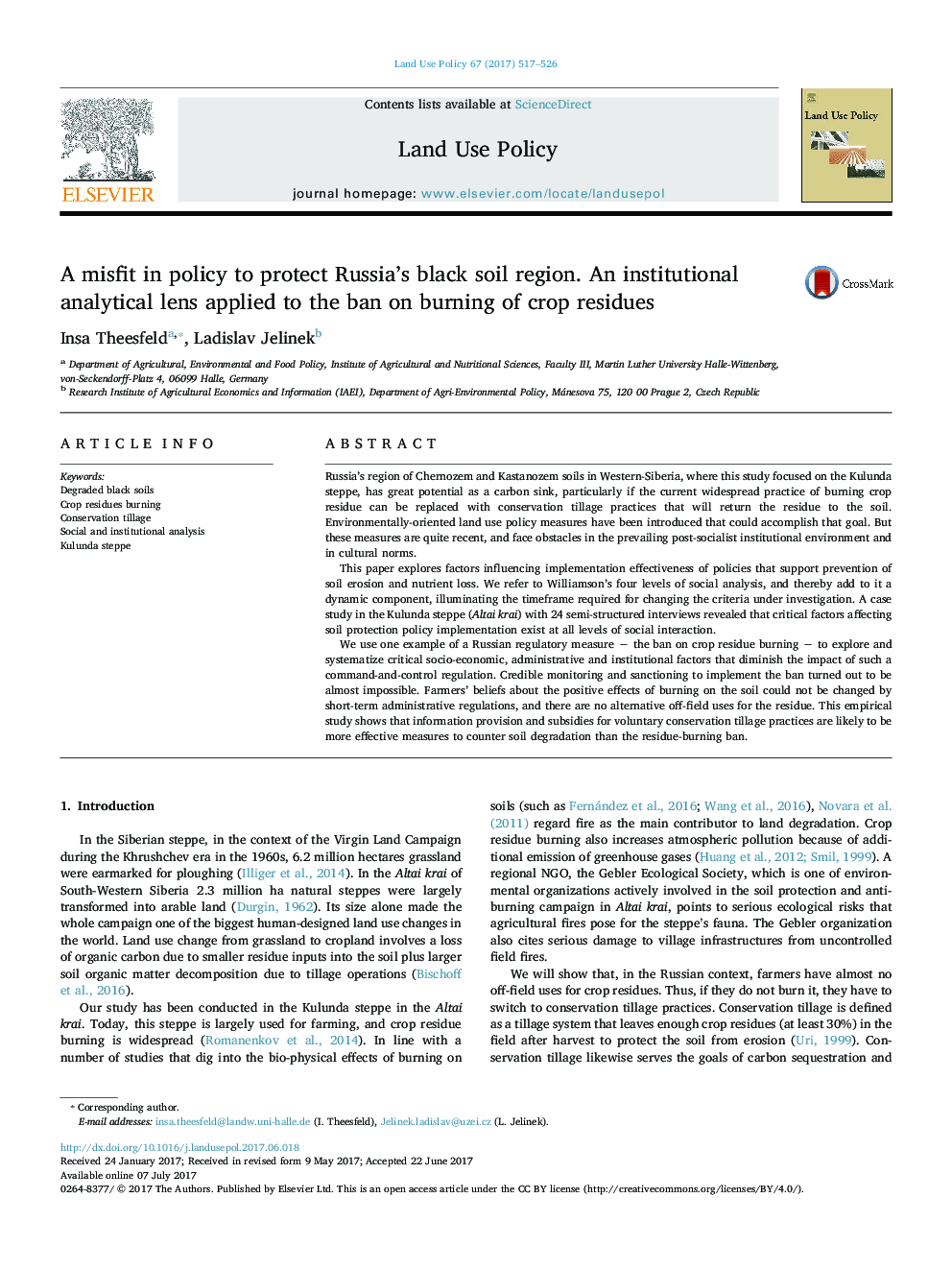| کد مقاله | کد نشریه | سال انتشار | مقاله انگلیسی | نسخه تمام متن |
|---|---|---|---|---|
| 6460722 | 1421816 | 2017 | 10 صفحه PDF | دانلود رایگان |
Russia's region of Chernozem and Kastanozem soils in Western-Siberia, where this study focused on the Kulunda steppe, has great potential as a carbon sink, particularly if the current widespread practice of burning crop residue can be replaced with conservation tillage practices that will return the residue to the soil. Environmentally-oriented land use policy measures have been introduced that could accomplish that goal. But these measures are quite recent, and face obstacles in the prevailing post-socialist institutional environment and in cultural norms.This paper explores factors influencing implementation effectiveness of policies that support prevention of soil erosion and nutrient loss. We refer to Williamson's four levels of social analysis, and thereby add to it a dynamic component, illuminating the timeframe required for changing the criteria under investigation. A case study in the Kulunda steppe (Altai krai) with 24 semi-structured interviews revealed that critical factors affecting soil protection policy implementation exist at all levels of social interaction.We use one example of a Russian regulatory measure â the ban on crop residue burning â to explore and systematize critical socio-economic, administrative and institutional factors that diminish the impact of such a command-and-control regulation. Credible monitoring and sanctioning to implement the ban turned out to be almost impossible. Farmers' beliefs about the positive effects of burning on the soil could not be changed by short-term administrative regulations, and there are no alternative off-field uses for the residue. This empirical study shows that information provision and subsidies for voluntary conservation tillage practices are likely to be more effective measures to counter soil degradation than the residue-burning ban.
Journal: Land Use Policy - Volume 67, September 2017, Pages 517-526
